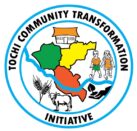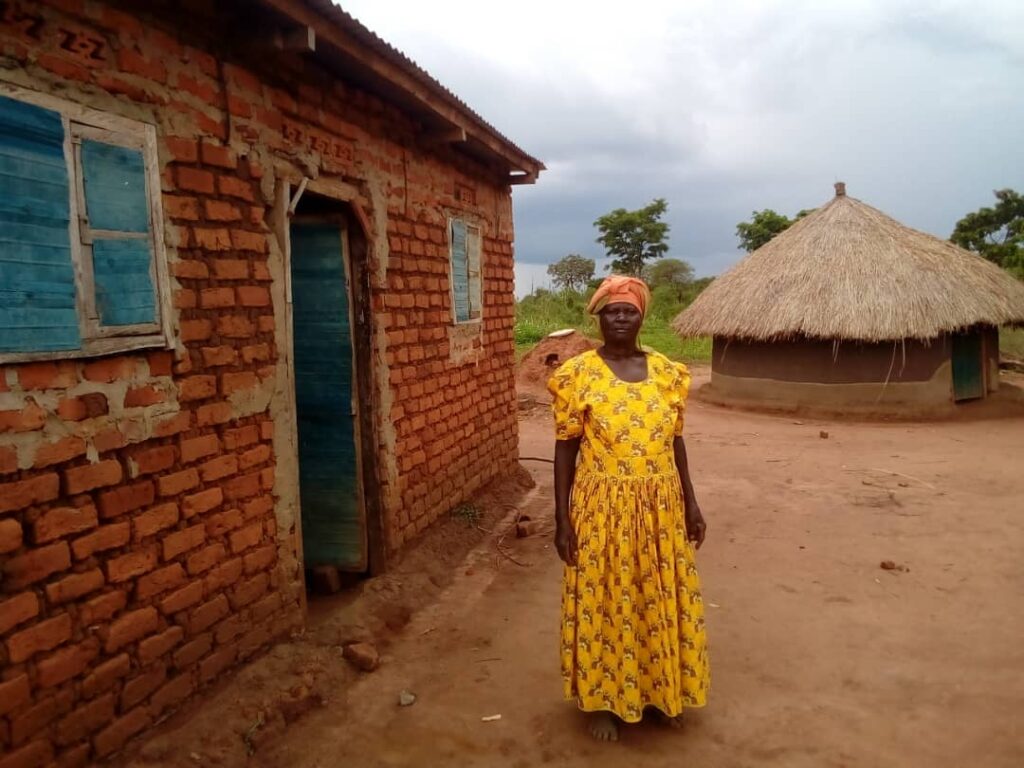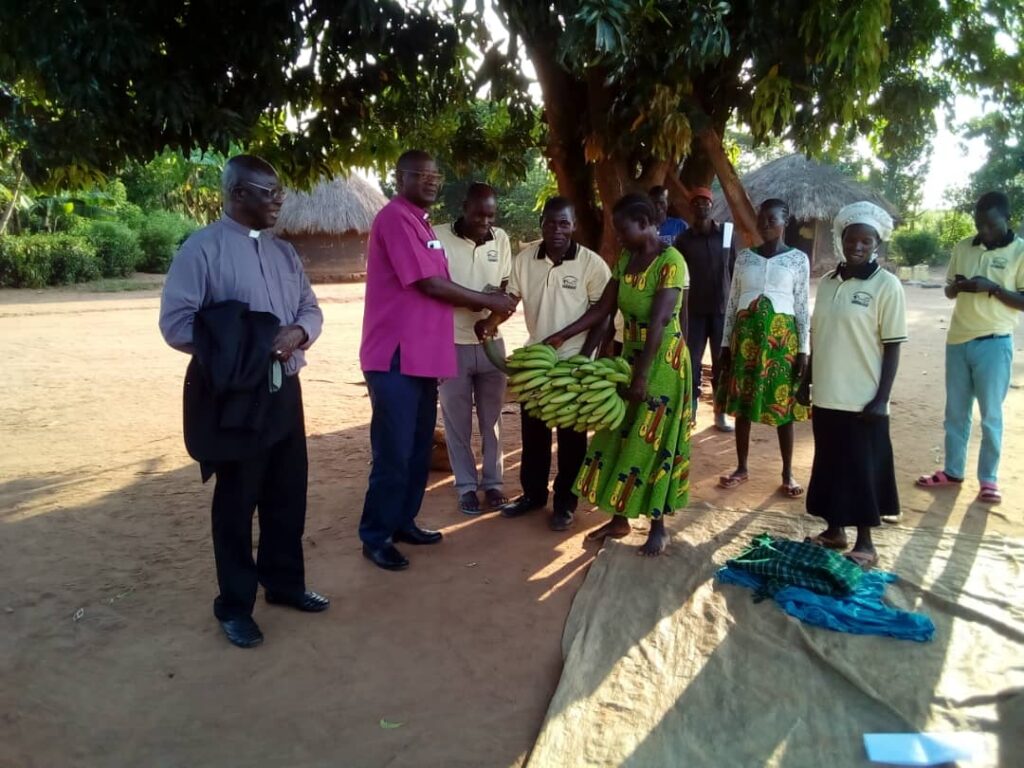On September 14, 2020, Milton Olanya, a retired primary school teacher, and his family were left under the open sky when their grass thatched hut was gutted by fire from an unknown source. All his belongings, including valuable documents and garden harvests for the first season were burnt to ashes.
Like Olanya, thousands of families in northern Uganda have suffered similar losses for decades. The losses are a common occurrence among the majority rural poor who predominantly use grass-thatched huts as their shelters.
But Uganda Christian University (UCU) graduate, Rev. Deacon Ocen Walter Onen, has designed a permanent solution to this problem. Through his Tochi Community Transformation Initiative’s “Get out of grass-thatched huts” program, Rev. Ocen has mobilized people around his home village of Palenga in Omoro District. The mobilization calls for villagers to support each other and build modern, two-bedroom houses with iron sheet roofs to save them from such sudden losses.
Under the program, individuals are encouraged to lay bricks, acquire a few other building materials and start up construction with the support of their colleagues. Every month, members of the group make financial contributions, ranging from Uganda shillings of 10,000 ($2.70) to 50,000 ($13.50) to support a member. The money is used to buy cement, building stones, sand, and steel, and also pay the technical labor force.
Rev. Ocen (extreme left) with a group of women at his neighborhood after a prayer meeting in September 2020
Rev. Ocen (extreme left) with a group of women at his neighborhood after a prayer meeting in September 2020
They also provide manual labour like fetching water and mixing sand. When the structure reaches roofing level, the Church, through its networks, appeals to well-wishers to make contributions as low as a piece of iron sheet for the member.
As of late September, the 40 people registered for the program were either at the brick laying stage, putting up the wall or already at roofing. At least 33 iron sheets had already been collected for Patrick Onen, 49, whose building has reached the roofing stage.
Rev. Ochen said his target is to have every family in the village living in decent houses in the next five years. He also plans to establish solar energy suppliers for cheaper solar systems that can light the houses.
Alfred Lugeny, 52, said for most of his life, he has been trying to leave grass-thatched huts, but each time he laid bricks, he would be forced to sell them because he could not raise enough money to buy the other construction materials and pay labor force.
“I have been struggling to leave my grass-thatched huts, but I could not,” he said. “Yet grass is becoming increasingly harder to get due to increased human population. Termites also eat them, causing us to keep repairing the huts every year. The coming of this program has therefore given me greater hope of acquiring a good iron-sheet roofed house.”
Apart from the building program, Rev. Ocen moves door-to-door to meet youths and women to encourage them to engage in economically beneficial activities. He also meets groups of women under their Village Saving and Loan associations, to preach the gospel, pray with and encourage them. Besides, he also is setting up a community-funded scholarship program to support needy children through school.
Rev. Ocen says his approach to evangelism is an integral mission, combining the gospel with attendance to community needs.
Grass hut housing
Grass hut housing
“We cannot keep preaching the gospel to the poor without helping them realize their potential,” Rev. Ocen said, “Like Christ who attended to the needs of the community (John 2:1-11, John 4:46-47, Matthew 14:15-21, Matthew 15:32-39 and Luke 17:11-19), we Christian ministers should also do the same.”
At 27 years, Rev. Ocen was ordained into ministry and posted as a curate at St. Peters Church of Uganda, in the Bobi subcounty in Omoro District on February 23, 2020. His ordination came exactly one month before the COVID-19 lockdown was instituted in Uganda on March 23, banning Church services among other social gatherings.
With his workplace closed, Rev. Ocen decided to continue spreading the gospel while also helping people around him transform their lives.
“I noticed that so many of our people were having dependency syndrome, thinking that they could not help themselves,” Rev. Ocen said, “That is why I decided to bring this Asset-Based Community Development (ABCD) approach, based on the Half-Glass concept with the view that everyone has something to contribute in order for development to be realized.”
Bishop Johnson Gakumba, the Bishop of the diocese of Northern Uganda, under whom Rev. Ocen serves, said the works of Rev. Ocen will not only benefit the Christians, but the diocese as well.
“Poverty has been a great challenge among our Christians. As a result, giving in Church has been very poor,” Bishop Gakumba said, “And him (Rev. Ocen) coming to address that problem is such a blessing that must be supported by all who wish well for the Church.”
Bishop Gakumba said for the short time Rev. Ochen has been in service, the diocese has started benefitting from his creativity through his valuable input towards the development of the five-year Strategic Work Plan of the diocese, a thing that makes him so proud of the young servant of God.
Rev. Ocen said he prides himself so much in his UCU education that opened his eyes to see the world from a new perspective.
Jesuit Stephen Okello, a high school student at Pope Benedict XVI Integrated Schools Palenga, and one of the selected beneficiaries for the scholarship program, said that he feels that God is working miracles in his life through Rev. Ocen.
“I had lost hope in going back to school after my Senior Four, but this program came suddenly to me,” Okello said. “I cannot thank God and Rev. Ochen enough for this lifetime opportunity.”


